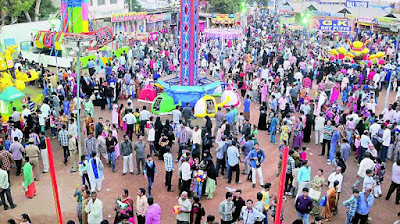
The almanac brought out by Dr Aleem Khan Falaki
Hyderabad: It is more than just a list of dates and events. It shakes your conscience and jolts you out of your complacency. This is one calendar whose leaves you wouldn’t like to tear off every month. Every page sends out a strong message about extravagant marriages in the Muslim community, the menace of dowry and ways to curb it.
Dowry has become the bane of Muslim marriages. Even Friday sermons in mosques are talking about the need to root out this social evil. But the almanac brought out by Dr Aleem Khan Falaki, president, Socio Reforms Society (SRS), seeks to drive home the message in a simple and effective way.
Masjiden alag — Shadi Khane ek
Namaz key tareeqe alag —- Shadi ke rasm-o-riwaj ek
(Different mosques but the wedding hall is the same
Different ways to pray but wedding rituals are the same)
In a telling way the calendar points out that different sects have their own mosques but the wedding halls are the same. Their method of namaz (prayers) differs and yet the marriage rituals remain the same. Then comes the punch line: all sects appear to have ganged up against the ‘Sunnat-e-Nikah’ (Prophetic way of marriage). Boycott such un-Islamic marriages.
Each leaf of the calendar delivers a thought-provoking message in Urdu and Roman Urdu accompanied by pictures. It mocks at the charade of giving and taking ‘jehez’ in the name of ‘khushi se’ (happiness). If there is nothing wrong in accepting dowry given ‘happily’ then corruption, gambling, wine and interest should also be permissible since all these acts are done ‘khushi se’, it says.
A good number of men and women, who attended the calendar release programme here on Sunday, resolved to stay away from marriages where dowry is taken forcibly. The SRS plans to hold its next programme on ‘Saas ho to Aisi’ which celebrates women who have not made any demands during the marriages of their sons.
Mr Falaki has been leading a crusade against the dowry system for nearly 18 years. He articulates his ideas and social stances without mincing words. The scourge of dowry is posing a big challenge to the Muslim community —making marriage a near impossible task for the low income groups.
“One should have the guts to boycott marriages where dowry is demanded and un-Islamic practices followed,” he says.
He tries to prick the conscience of the community through different means books, short films, talks and songs. The calendar is yet another arrow in his quiver to send out a wakeup call be man enough to say ‘no’ to such marriages.
J.S.Ifthekhar,
Hyderabad based journalist.
Article published in Deccan Chronicle
Dated December 25,2018














